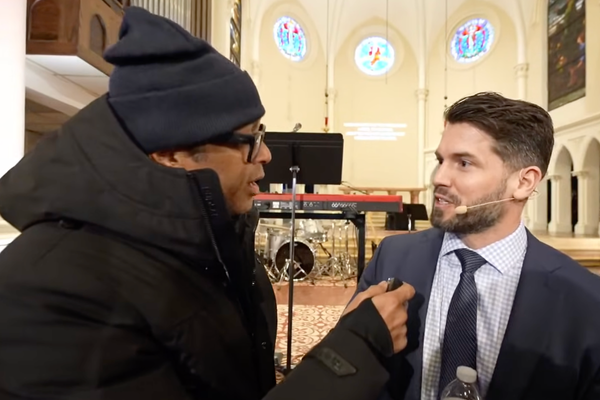Former Missouri Rep. Billy Long faced withering questions from Senate Finance Committee Democrats over his post-congressional business activities during a hearing on his nomination to be IRS commissioner on Tuesday.
Republicans on the panel expressed confidence that the former six-term GOP lawmaker would improve services to taxpayers, make the IRS more efficient, and, in the words of Senate Finance Chairman Michael D. Crapo, “ensure that new tax legislation is implemented and administered as Congress intends it to be.”
Democrats, though, faulted him for collecting fees after leaving Congress by referring people to tax promoters who sold what they say were nonexistent “tribal tax credits” to investors.
Ron Wyden, ranking member of the panel, said Long “dove headlong into the tax scam industry.” Democrats said the IRS told them the tribal tax credits do not exist. “It was a fraud,” Wyden, D-Ore., said.
[Ex-Missouri lawmaker Billy Long is Trump’s pick for IRS commissioner]
Democrats pointed to Long’s financial disclosures showing he received $65,000 in income from Capitol Edge Strategies, a tax consulting firm, which they contend were derived from White River Energy Corp., an oil and gas exploration firm in Arkansas.
Long said he worked through Capitol Edge Strategies on the tax credits and never met or interacted with anyone at White River Energy. He told Crapo, R-Idaho, his “tax advisory work” was limited to providing referrals, that he never offered tax advice and always advised people to consult with their own attorneys or accountants.
Long said at the time, he had no reason to believe the tax credits were fake. He told Wyden he is unsure today whether they are real. “I can’t answer yes or no because I do not know,” he said. “I think the jury’s still out on that. I know since 2022 they’ve been accepting them, so now they claim that they’re not.”
Wyden went on to say that after a news article was published last December “about White River’s scheme,” the company’s “phone lines must have blown up.”
The next month, Wyden said, “the folks at White River decided it was time to whip out their checkbooks and start donating to Congressman Long’s long-dormant Senate campaign.”
Long had unsuccessfully sought the GOP nomination for Senate in 2022, losing to current Sen. Eric Schmitt, R-Mo., in the August primary.
Wyden said the campaign had outstanding debt going back more than two years, and more than $165,000 poured into the campaign coffers to retire the debt, “the vast majority of it from tribal tax credit promoters, including people at White River.”
Wyden told Long he’s concerned he may have made promises in return for campaign donations.
Long told him “no,” he had not made a promise to any tax promoter that he would provide help in return if he were confirmed as IRS commissioner.
“So you didn’t meet with anybody when you were in town for the inauguration and promise them a private letter arrangement or something like that?” Wyden asked.
“I haven’t promised anybody a letter of any type that I can think of,” Long said. “I was in my room for about 50 hours because I had food poisoning during the inauguration, so I didn’t talk to many people.”
Wyden then told Long that committee staff investigators “have on tape now a tax promoter saying you met with him at the inauguration and promised him a favorable private letter ruling.”
Wyden added, “We also have on tape the White River CFO who gave you the thousands of dollars that he expects favorable treatment of these fake tribal credits.”
The hearing drew to a close after that, without further comment from Long.
Earlier in the hearing, Long told the committee that if confirmed, he will produce “real transformational change to an agency that needs it more than any other federal agency.”
He added that he would arrive at the office 90 minutes before it opens every day to meet with any employee to discuss the agency and how to improve it.
Wyden told Long he would vote against his nomination. Crapo urged support for Long at a vote yet to be scheduled.
The post Trump IRS nominee grilled over ties to fraudulent tax credits appeared first on Roll Call.







